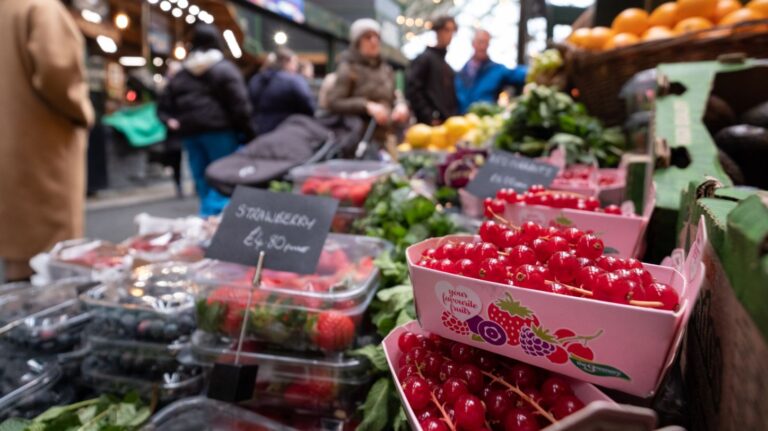The UK Department for Environment, Food & Rural Affairs (Defra) announced on 2 June 2025 that planned fruit and vegetable import checks will not be introduced in the summer of 2025.
This follows the recent announcement that the UK government plans to agree a sanitary and phytosanitary (SPS) agreement with the EU as part of the new UK-EU deal establishing post-Brexit relations between the two economies.
Defra says that this planned agreement will ‘facilitate the reduction of barriers to trade, including routine import checks on SPS goods moving between the UK and the EU, and vice versa’.
It explains that ‘during the implementation of the new Border Target Operating Model (BTOM) import controls in 2024, an easement was placed on medium-risk fruit and vegetables imported into Great Britain from the EU, Switzerland and Liechtenstein to give businesses more time to prepare for incoming controls on medium-risk plants and plant products’.
This easement, it notes, meant these goods were temporarily exempt from plant health controls, but was it due to end on 1 July 2025. However, with an SPS agreement between the UK and the EU expected to be agreed, these checks will not take place, and the current easement will be extended until 31 January 2027.
The BTOM is the UK government’s post-Brexit framework for managing imports of goods, particularly focusing on SPS and safety controls.
The aim of the BTOM was to enhance biosecurity and streamline border processes through a risk-based approach, using technology and trusted trader schemes. Originally scheduled for phased introduction from 2022, its implementation has faced multiple delays, with key measures gradually rolling out from January 2024.
READ MORE: Inquiry launched evaluating post-Brexit border controls for the import of animal and plant products
Responding to the news of the easement’s extension, Logistics UK’s head of trade and devolved policy Nichola Mallon commented: “Our members will welcome the news that checks on fruit and vegetables moving between UK and EU, and vice versa, will not be introduced this summer, given the additional bureaucracy, expense and time it would have costed.
“Traders and logistics businesses have the practical experience of moving goods across borders. They could foresee the difficulties these checks would have caused given the volumes of these perishable items that are imported from the EU every day.
“They are the experts on where processes can be improved, and it is vital that the government seeks their input as it discusses the technical details and then moves to implementation of a UK EU SPS Agreement.”
Mallon also draws attention to other measures due to come into effect this summer: “One significant and extremely costly change that is still expected to apply from 1 July is Phase Three of ‘Not for EU’ labelling on composite products, such as pet food, moving from Great Britain to Northern Ireland under the Windsor Framework.
“This expensive requirement will most likely be removed by the forthcoming SPS agreement and we would urge the EU and UK to take where possible a more pragmatic approach to support businesses and minimise the considerable cost burden they are facing.”
Defra’s director of circular economy, Emma Bourne OBE, is speaking at this year’s Sustainable Supply Chain Conference, returning to 30 Euston Square in London on 24 June 2025.
Click below to find out more about her session and the conference itself, and make sure to register for the conference today!







